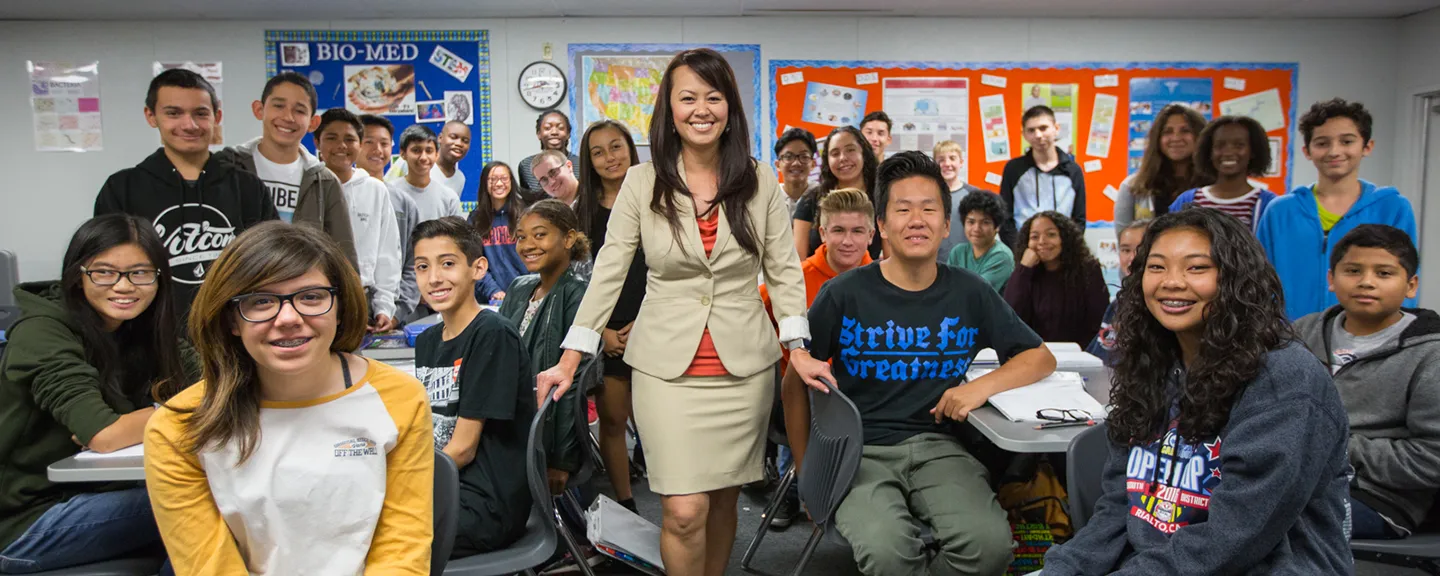- Home
- >
- APU Articles
- >
- News Article
Leading K-12 School Communities During Times of Uncertainty
February 14, 2022 | Written By Ana Felce

Throughout 2020, the pandemic greatly impacted education as schools closed, classes moved online, and plans evolved to provide students everywhere with a quality remote education. Teachers and administrators leading these efforts met the challenges with adaptability and resilience.
Faculty and graduates of Azusa Pacific University’s EdD in Educational Leadership program shared their thoughts to help educators navigate these ongoing changes as schools continue to adapt. Here are several key insights for leading during uncertain times.
Being a Servant Leader
Many educators were tasked with navigating remote learning and altered classrooms while maintaining a quality culture of teaching and learning without the social component of education. For APU graduate Kim Lu Lawe, EdD ’16, this meant taking to heart the four universal needs of those she leads: hope, trust, compassion, and stability, as explained in Gallup.
“I’ve been very intentional about it since school closed in mid-March of 2020, to continue to weave those things into the narrative and constantly check in on my staff. That may look like picking up the phone, calling them and wishing them a happy birthday, or doing an informal Zoom check-in, where it’s not business-related,” Lawe said. “We talked about those things and we continue to build that culture, even at a distance.”
Lawe also noted that educators act as servant leaders. “It’s all about decision-making and getting the task done,” she said. “We are here to serve others, remove barriers, and provide as much support as possible.”
Leading with Honest Expectations
Successful leaders build empathy and connection through honest communication. Especially during unprecedented times, educators stand to learn a lot by discussing the expectations and challenges facing their K-12 school communities.
As a superintendent, Greg Plutko, EdD, has guided local schools through challenges including COVID-19 by using transparent communication.
“What the school community needs from us as leaders first and foremost is honest communication. They need directness,” Plutko said. “We have to be factual. If that means we present both sides to something and say we don’t yet know the answer, then that’s what we present. But that factual part is what I believe people crave.”
Continued Learning through the Challenges
In challenging moments like these, Plutko suggested a question that today’s leaders should ask themselves, “How do we provide grace to ourselves?”
Petria Gonzales, EdD ’20, agrees that today’s leaders don’t always have the answers. “Nobody likes to say, ‘I don’t know,’ yet in this extraordinary time, this is an honest response and people will appreciate that reality and extend some grace,” she said.
Leaders looking for those answers need to be intentional about finding support. Despite the current need to physically distance from others, this work cannot be done alone. For leaders in education, this means learning together about what is and isn't effective, and starting over—together—when necessary.
Plutko noted that he sees the positive flexibility and support that will emerge from today’s challenges. “I’ll be really interested to see all of the software gains and skill sets that we develop around one-on-one mentoring and professional development from these new technologies,” he said.
Curious to learn more about how APU is preparing educators to become tomorrow’s leaders? Explore the School of Education and its Doctor of Education in Educational Leadership.